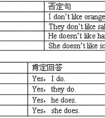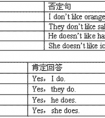濠电姷鏁告慨鐢割敊閺嶎厼绐楁俊銈呮噺閺咁亪姊绘担鍓插悢闁哄鐏濋‖鍫ユ煕濡ゅ懍鎲鹃柡宀€鍠栧鑽も偓鐢登规俊浠嬫⒑缁嬪灝顒㈤柛銊ユ健瀵鈽夊⿰鍛澑闂佸搫娲ㄩ崑娑欑濮椻偓濮婂搫效閸パ冾瀷闂佺ǹ顑嗛幐鑽ょ矚鏉堛劎绡€闁搞儴鍩栭弲顒勬⒑閹稿海绠撻悗姘煎弮瀹曟劙鏁愰崶鈺冿紳婵炶揪绲肩划娆撳传閾忓湱纾奸悹鍥ㄥ絻椤忣亞绱掗崒娑樻诞闁轰礁鍊块幊鐐哄Ψ瑜忚倴闂傚倷绶氬ḿ褑鍔归梺閫炲苯澧撮柡浣稿暣瀹曟帒鈽夊顒€绠哄┑锛勫亼閸婃洜鎹㈤幇顔瑰亾濮橆剙妲婚崡閬嶆煙闂傚鍔嶉柣鎾存礋閺屾洝绠涢妷褏锛熼梺鍛婄憿閸嬫捇姊绘担渚敯婵炲懏娲栫叅闁哄稁鍙忕紞鏍ㄧ節闂堟侗鍎忛崬顖炴⒑闂堟稓绠冲┑顔挎珪缁旂喖寮撮姀鈾€鎷虹紓浣割儐鐎笛冿耿閺夎¥鈧帒顫濋褎鐤侀悗瑙勬礃濞叉牠锝炲⿰鍫濈劦妞ゆ巻鍋撴い顐㈢箲缁绘繂顫濋鍌︾床闂備線娼ч悧鍡涘箠韫囨稒鍊堕柡鍥╁剱濞撳鏌曢崼婵嗘殭闁诲浚浜弻娑㈠Ω閵夈儺鏆㈢紓渚囧枛椤戝懘顢橀崗鐓庣窞濠电姳鑳堕悙濠囨⒒娴e憡鍟炴繛璇х畵瀹曟垿宕卞☉杈ㄦ櫓閻庡厜鍋撻柛鏇ㄥ厴閹风粯绻涢幘纾嬪婵炲眰鍊曢锝囨崉閵娧咃紳閻庡箍鍎扮粈浣圭閸撗呯=闁稿本鐟ч崝宥嗘叏婵犲偆鐓肩€规洑鍗冲浠嬵敇閻愬鈧剟鎮楅獮鍨姎妞わ缚鍗冲畷鎴﹀礋椤栨稓鍘介梺鐟邦嚟閸嬪秶绱撳鑸电厽闁挎繂妫楅埢鏇熸叏婵犲倹鎯堥悡銈夋偣娴h姤鐝柟鐧哥秮濮婅櫣绮欏▎鎯у壉闂佸憡姊瑰ú鐔煎春閵忋倕绫嶉柛顐g箘閸樻悂姊洪崨濠佺繁闁哥姵鐗犲畷婊堫敋閳ь剙顫忓ú顏勭闁圭粯甯婄花鑲╃磽娴g瓔鍤欑紒澶嬫綑瀹撳嫰姊绘笟鍥у缂佸鏁婚幃陇绠涘☉娆戝幈闂佹枼鏅涢崰姘枔閺冨牊鐓冪憸婊堝礈濠靛缍栧鑸靛姇閻ら箖鏌涢锝嗙闁稿鍔欓弻褑绠涢敐鍛盎閻庢鍠栧ḿ锟犲蓟閿濆棙鍎熸い鏍ㄧ矌鏍¢梻浣告憸婵數鏁垾宕囨殾闁硅揪绠戠粻濠氭倵濞戞顏堫敁閹剧粯鐓熼柣鏂挎憸閹冲啴鎮楀顒佸櫣妞ゎ偅绻冨ḿ蹇涘Ω閵夛妇鈧箖姊绘担铏瑰笡妞ゃ劌鎳橀幃褔宕卞☉娆戝帓濠电姴锕ら幊鎰婵傜ǹ绾ч柛顐g☉婵¤法绱掗悩闈涗户闁逞屽墲椤煤閳哄啰绀婂ù锝呮憸閺嗭箑鈹戦崒婧撶懓鏁梻渚€娼х换鎺撴叏閾忣偆鐝堕柡鍥╁枔缁犻箖寮堕崼婵嗏挃闁告帊鍗抽弻鐔烘嫚瑜忕弧鈧悗瑙勬礃閸ㄤ絻鐏掗梺绋跨箳閸樠囧几閹达附鈷戠紓浣癸供濞堟棃鏌eΔ鈧Λ娑氬垝椤撱垹绠抽柟鍨暞椤旀棃姊虹紒妯哄闁宦板妼閻i浠︾憴锝嗘杸闂佹枼鏅涢崯顖滀焊閿旈敮鍋撶憴鍕閻㈩垱甯¢崺鐐哄箣閿曗偓楠炪垽鏌嶇悰鈥充壕闂佺懓顕崗妯侯潖缂佹ɑ濯撮柛娑橈工閺嗗牓鏌i姀鈺佺仯闁稿鍋ゅ鑼崉娴f洘妫冨畷銊╊敊閻撳骸顥掑┑鐘垫暩閸嬫稑螞濞嗘挸绠伴柛婵勫劜閸忔粓鏌嶈閸撴瑩鍩為幋鐐茬疇闂佺ǹ锕ュú婊堝焵椤掍礁鍤柛鎾跺枎閻i鎲撮崟顒€顎撶紓渚囧灡濞叉﹢锝炲澶嬧拺闁荤喐婢橀埛鏃€銇勯幒鎾跺弨鐎殿喓鍔庣槐鎺懳熼崷顓犵暰闁诲海鎳撴竟濠囧窗閺嶃劍娅犻柟缁㈠枟閻撴稑霉閿濆懏鎲搁懖鏍ㄧ箾鐎电ǹ顎撶紒鐘虫崌楠炴劖绻濋崘銊х獮閻庡厜鍋撻悗锝庡墰椤︽澘鈹戦悩鍨毄闁稿鍋ゅ畷褰掑醇閺囩偟顔囩紓浣割儐閿涙洖煤椤忓嫀褍顭跨捄鐚村姛妞ゆ柨妫欑换娑㈠级閹存繃鍊┑鐐插悑閻熲晛鐣烽敐鍡欑瘈闁搞儯鍔庨崢顏呯節閵忥絾纭鹃柣妤€妫濋崺鈧い鎺嶇贰濞堟ḿ绱掗鑺ヮ棃鐎规洖銈稿鎾偄閸濆嫬濡囬梻鍌欒兌绾泛危閸涙潙鍌ㄩ柣锝呭閸嬫挸顫濋悙顒€顏�
从方框中选择合适的单词或短语,并用其正确形式完成句子。listen to, take a walk, talk about, enjoy, put on, be useful for,next to, heavy, get to,look like1. Our sc-七年级英语
14. look
look up查找,向上看
look through翻阅,浏览
look after/ at / for 照顾/看/寻找
look out(for)当心
look about / around/round四下查看
look forward to盼望
15. make
make up编造,打扮,组成
make into / of / from 制成
16.pass
pass by经过
pass down(on)…to传给
17. pay
pay back还钱,报复
pay for付钱,因…得到报应
18. pick
pick up拾起,接人,站起,收听,
pick out挑选,辨认,看出
19. put
put up张贴,举起,
put out伸出,扑灭
put off推迟
put into放进,翻译
put away放好,存钱
put down记下,平息
put on穿戴,上映,
put aside放到一边
put back放回
20. stand
stand out 突显,引人注目
stand up 起立,站起来
38.其它常用词组
wake up 醒,唤醒,弄醒
stay up 不睡觉;熬夜
depend on依靠;取决于
worry about为。。。担忧
laugh at嘲笑。。。
begin with以。。。开始
mix up混合、搀和
major in 主修
grow up成长
open up 打开,张开;开发
end up到达或来到某处; 达到某状态
throw away 丢弃。。。
ask for要求。。。
wait for等待。。。
agree with同意。。。
find out(经研究或询问)获知某事
send out 发出,放出,射出
search for 搜索,搜查
chop down 砍到
have.. on 穿着。。。
step out of 跨步走出
drop out of 从。。。掉出
happen to 发生在。。。
belong to属于
arrive in /at到达。。。
try on试穿。。。
vote on对。。。进行投票
strech out伸展。。。
hang out闲逛
leave for离开前往
sell out 卖完、售完
show up 出席;露面
21. run
run after追逐,追捕
run away逃跑
run off跑掉,迅速离开
run out of用完
22. set
set up建立
set off 激起,引起
23. take
take after 与…相像
take off脱掉,起飞
take away拿走
take up从事,占用(时间空间)
take down记录,取下
take back收回
take pride in以… ……为自豪,
take the place of 代替
24. think
think of想起,考虑,对…看法
think out(自然)想出办法
think up想出(设计出、发明、编造)
think about考虑
think over仔细考虑
25. turn
turn off / on打开
turn to翻到,转向,求助
turn down调低,拒绝
turn back返回,转回去
turn round转过身来
turn up向上翻,出现,音量调大
26. care
care about 担心,关心;在乎,介意
care for 关心,关怀,照顾
27. clean
clean up 把…打扫干净,把…收拾整齐
clean out 清除;把…打扫干净
28.learn
learn about 获悉,得知,认识到
learn from 从/向。。。学习
29. fight
fight for..争取获得…
fight against 争取克服、战胜…
fight with…与。。。搏斗/战斗
30. dream
dream of梦想,想橡
dream about 梦到。。。
31. work
work for 为。。工作
work out 产生结果;发展;成功
32. argue
argue with …与。。。争论
argue about..争论。。。
33. complain
complain to 向。。抱怨
complain about抱怨。。。
34. hear
hear of 听说,得知
hear about听到。。。的事,听到。。的话
hear from接到。。。的信
35. talk
talk about 讨论。。。
talk with/to..和。。。讨论
36. live
live in 住在。。。
live on 以。。。为主食
考点名称:一般现在时
- 一般现在时:
:表示通常性、规律性、习惯性的状态或者动作(有时间规律发生的事件)的一种时间状态。 - 一般现在时的具体用法:
1. 表示经常的或习惯性的动作,常与表示频率的时间状语连用。
e.g. I leave home for school at 7:00 every morning.
2. 表示客观事实和普遍真理。
e.g. The earth moves around the sun.
3. 表示现在发生的具体动作或存在的状态
e.g. He lives in Beijing now.
4. 习惯性的爱好或行为
e.g. I like dancing while she likes singing.
5. 表示预先计划或安排好的行为。
e.g. Our class begins at 7:45.
6. 在时间状语从句和条件状语从句中,常用一般现在时代替将来时。
e.g. If you come, we will wait for you.
7. 表示格言或警句中。
e.g. Pride goes before a fall. 骄者必败。
8.表示主语具备的性格、能力、特征和状态。
e.g. I don't want so much.
Ann Wang writes good English but does not speak well.
比较:Now I put the sugar in the cup.
I am doing my homework now.
9.在时间状语从句和条件状语从句中,常用一般现在时代替将来时。
10.小说故事用一般现在时代替一般过去时。新闻报道类的内容,为了体现其“新鲜”性,也用一般现在时来表示过去发生的事情。
11.有些表示状态和感觉的动词表示现在发生的具体行为时,只用一般现在时,而不用进行时态。
注意★:此用法如果出现在宾语从句中,即使主句是过去时,从句谓语也要用一般现在时。
例:Columbus proved that the earth is round.. 第一句用一般现在时,用于操作演示或指导说明的示范性动作,表示言行的瞬间动作。再如:Now watch me,I switch on the current and stand back. 第二句中的now是进行时的标志,表示正在进行的动作的客观状况,所以后句用一般现在时。 - 一般现在时与现在进行时的区别:
一、两种时态的主要含义:
一般现在时
1.表示事物的本质特性或客观存在,没有时限性。
The table ____ soft。(feels) 表特性特征。
Japan ___ in the east of China。 (lives) 表客观事实
2.现阶段经常性、习惯性的行为,可带频率时间。
The shop closes at 7:30 p.m.
Father doesn’t smoke. (习惯)
3.表说话时的状态,感觉或结果,一般用状态动词,如:
It doesn’t matter. Does it hurt? (感觉结果)
4.特殊用法:
-在条件、时间、让步从句中用现在时代替将来。
-If you go there,I’ll help you.
—用在begin,come,go,leave,return,open,close 等短暂谓语动词表规定计划。
The plane takes off at 11:30. (不受主观支配的计划)
-在剧本、解说、标题或there(here)开头的句中表进行
There goes the bell/Here comes Mr.Wang.
I declare the meeting opens.(正在宣布)
He meets the ball and hits back to No.2 (正在发生)
现在进行时
1.说话时正在发生,进行的动作
Look! Dark clouds are gathering . (正在发生)
2.表现阶段正在进行,但此刻不一定正在进行的事。
He usually gets up at 6:00,but this week he is getting up at 7:00.
- 最新内容
- 相关内容
- 网友推荐
- 图文推荐
上一篇:-Do you often eat in the restaurant?-No, I often______at nome.[ ]A. buy B. cookC. likeD. play-七年级英语
下一篇:She often______glasses to see things clearly.[ ]A. sellsB. watches C. puts D. wears-七年级英语
零零教育社区:论坛热帖子
| [家长教育] 孩子为什么会和父母感情疏离? (2019-07-14) |
| [教师分享] 给远方姐姐的一封信 (2018-11-07) |
| [教师分享] 伸缩门 (2018-11-07) |
| [教师分享] 回家乡 (2018-11-07) |
| [教师分享] 是风味也是人间 (2018-11-07) |
| [教师分享] 一句格言的启示 (2018-11-07) |
| [教师分享] 无规矩不成方圆 (2018-11-07) |
| [教师分享] 第十届全国教育名家论坛有感(二) (2018-11-07) |
| [教师分享] 贪玩的小狗 (2018-11-07) |
| [教师分享] 未命名文章 (2018-11-07) |


![How much does it ______ to fly from Yancheng to Hainan Island?[ ]A. cost B. payC. spend D. take-七年级英语](http://www.00-edu.com/d/file/ks/4/2/shiyidongci/2020-01-05/small7dcf2f05998de63e10cc3629787031c81578210087.png)

![He always _____TV in the evening. He _____ listening to the radio. [ ]A. watch, don't like B. watches, doesn't like C. watching, don't like D. watch, do-七年级英语](http://www.00-edu.com/d/file/ks/4/2/shiyidongci/2020-01-05/small45d599b4a60b84e61cec210bfbf051f51578214524.png)
![I'd rather ___ to the Mcdonald's Restaurant because I like to listen to quiet music.[ ]A. to go B. going C. go D. went-八年级英语](http://www.00-edu.com/d/file/ks/4/2/shiyidongci/2020-01-05/small1767bba1727fef2c035c53dcbd9bc20e1578209517.png)


